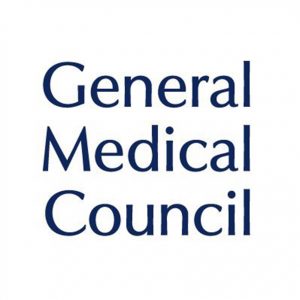The tweet above can very easily apply to any profession, but for the purpose of this post, I will be limiting the discussion to the medical profession. I am of the opinion that many untrained people who google symptoms they may have are doing a lot of disservice to themselves. This excludes people who have been given a diagnosis by a physician.
It is very much encouraged that you google a diagnosis to become more knowledgeable about it. Make it a habit to ask your doctors exactly what you are being treated for, this knowledge and subsequent informed research will be beneficial to both you and the doctor in effectively managing the condition.
Googling your symptoms simply returns the most popular results clicked on for the keywords you have typed in. Google, at the moment, doesn’t have the ability to clinically reason out symptoms to return the most likely clinical diagnosis.
Try this, google ‘fever headache and body aches’ from a location in Nigeria. The results you will get up to the tenth possibility will not include malaria. Mind you, this is the most likely diagnosis for anyone with these symptoms in a malaria-endemic region like ours. The results the search engine returns will include things like flu and some viral hemorrhagic fevers. The flu is very common in the West and they have wider internet access than us, hence, the search engine produces the most commonly clicked results in its repository.
Look at this tweet by @_alycetaye!
Originally tweeted by Young CFO🖤🦋 (@_alycetaye) on September 26, 2020.
A doctor spends 6 to 7 years in medical school understanding how the human body works and the common disease conditions in the society where they are being trained. So, a doctor who wishes to practice in a country other than that in which he trained would have to be licensed by the medical licensing board of the intended country. This is done to ensure that the doctor is familiar with the common conditions in that environment.
This acquired knowledge by physicians makes it possible for them to sieve through a number of search results and academic papers, written in technical language, to get an answer for you.
A few of my colleagues report being somewhat shy to use Google while consulting. The reason for this is not far-fetched as we have been trained in medical school to pack a lot of information in our head and regurgitate them when needed.
In truth, a doctor cannot have all the information in the world at their fingertips. In fact, they should be open to checking up information as the need arises, to avoid errors. However, every doctor needs to clearly understand the normal workings of the body and common disease conditions (and indeed they do), so they are able to build on this existing knowledge.
For something like drug dosages and side effects of drugs, I often resort to the online version of EMDEX (a drug prescribing book), as I do not have the hard copy. A lot of the times, when I get a weird complaint from my patients who are on certain drugs, I am quick to whip out my computer and Google together with them to find out the side effects of the drug they are currently taking and if it has any association with the symptoms they may be having.
When starting out as a young doctor, there are a lot of things one has to learn on the go and it will be a good idea to work under reasonable supervision for the first two years of practice. Also, Google is a very close friend to run to in times of diagnostic dilemmas. Another viable option will be having a group of colleagues to run cases by, as some of them may have come across a similar condition.
Finally, Googling medical symptoms more often than not heightens your anxiety and you most likely get an exaggerated and/or incorrect diagnosis.
The people who have the license to practice medicine are in the best position to use Google to your benefit. Devolve that responsibility to them.
featured image: Photo by Markus Winkler on Unsplash





Beautiful!!!! Weldone Sir.
Some patients are already halfway dead from their perceived diagnosis online. Often times one has to ‘bring’ them back to life then commence the proper management Plan.
Great Job Sir Aikay.
Loooool!
This is so funny and true. Thank you for reading and commenting Oiza.
Loooool!
This is so funny and true.
Thank you for reading and commenting, Oiza.
Brilliant.
Thank you Dami!
I enjoyed reading this. Everyone should be aware of the dangers googling their symptoms poses.
I am glad you enjoyed it Olumide. Thank you for reading and sharing your thoughts.
On point as always.
Thank you Josh!!!
Amazing…I love this guy
I love you too bro
This was worth the read ..Well done Doc
Thank you Vivianne
Apt!
Thanks for this wonderful information.
Thank you for reading Uthman!
Tell them o…
And patients shouldn’t be so concerned when the doctor is checking online for information about their ailments..
It’s all in the best interest of the patient..
Thank you IK..
And patients shouldn’t be so concerned when the doctor is checking online for information about their ailments..
It’s all in the best interest of the patient..
Yes Jade! It is for their own good! They need to understand that. Thank you for reading and commenting.
An awesome piece
Thank you Gabriel!